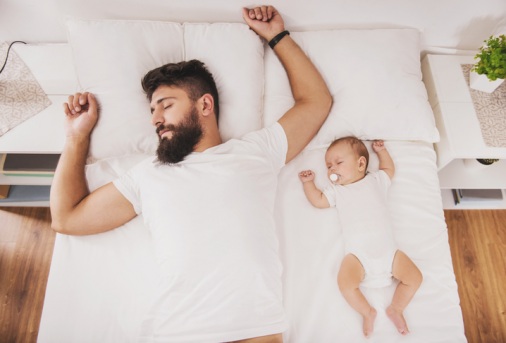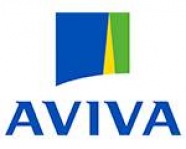Aviva's new dads take over 5 months parental leave

Aviva data reveals when barriers are removed, fathers share childcare and work more flexibly.
- 23% increase in the number of new dads taking equal parental leave in 2019 vs 2018.
- New fathers at Aviva in the UK have taken an average of 22 weeks’ paternity leave since its Equal Parental Leave policy was introduced, vs an average of two weeks previously.
- 97% of new dads at Aviva in the UK took more than two weeks, compared to the national average of 31% of eligible dads who used two weeks paternity leave in the last year*.
- 32% of Aviva UK new dads work flexibly when they return to work.
New figures from Aviva show how equal parental leave can transform parenting patterns in the UK, with new dads now taking on average five months parental leave, on full pay, compared to the national average of two weeks. The figures come from research conducted by Aviva amongst its own employees to examine the impact of equal parental leave, two years after Aviva was one of the first major UK companies to offer such a policy.
Since its introduction in November 2017, 1380 Aviva employees in the UK have made use of the policy, of which 680 were dads. Aviva in the UK offers all new parents 12 months parental leave, with six months at full basic pay.
In 2019 there was an 11% rise in the amount of paternity days taken compared to 2018, and an increase of 23% in the number of fathers taking the leave compared to 2018.
Lindsey Rix, Aviva CEO UK Savings and Retirement, said:
“When barriers are removed, and the right culture is in place, men are keen to take more time out of work to care for their young families. Equal parental leave can be a powerful catalyst for changing workplace culture and the experience of new parents.”
“We believe our approach to parental leave is working because of a number of factors. First, there is active and vocal support from senior leaders, who themselves take months, not weeks, of parental leave. Second is the simplicity and ease of the policy, there’s no small print. Third, there is support beyond the paternity period itself - when colleagues come back to work there is broad availability for flexible working. Finally, we work hard to normalise it - the more people who see colleagues taking lengthier parental leave, the more they feel able to do so as well.”
The Aviva research also reveals that 43% of dads were worried it would impact negatively on their career, (compared to 20% of women). Yet despite this, the increase in men taking the leave suggests it did not deter them. This is likely to reflect the fact that colleagues describe strong line manager support: 92% of those colleagues questioned said their line manager was supportive of their decision to take parental leave.
There is a marked difference however on how parents return to work. More women still ‘formally’ change their working hours than men, with only 2% of men changing their contracted hours, compared to 29% of women. However, 32% of men questioned said they work flexibly or condensed hours when returning to work, in most cases ‘informally’.
Lindsey Rix commented:
“Many male colleagues have said equal parental leave has helped them to better understand what returning to work has long been like for new mums. We will be tracking this over the coming years to see exactly how it might have a positive impact on the shape of our business. We are also seeing an increase in the number of dads wanting to work more flexibly when they return, suggesting that equal parental is influencing that.”
Nevertheless, women at Aviva continue to take a significantly longer period of parental leave compared to men (311 days v 158 days), and only 18% of women said they didn’t change their original working hours, compared to 62% of men.
Lindsey Rix continues:
“We’re just two years into Equal Parental Leave at Aviva, and we’re still learning about its impact. However, what is clear is that it is helping to remove barriers and it is helping to create a more diverse and inclusive culture which benefits everyone. We will continue to help people understand how it can work for them and encourage people to use it.”
Case studies of male and female employees who have taken / plan to take parental leave are available from Aviva.
Authored by Aviva
About Aviva
Aviva Insurance Limited is one of the UK’s leading insurance companies, part of the Aviva group with 34 million customers Worldwide. Aviva Insurance has been in the insurance business for more than 300 years.
In UK commercial, the insurance market remains challenging for insurance brokers and customers, due to the ongoing economic conditions. Aviva Insurance are focusing on improving our processes to ensure Aviva provide commercial customers with insurance cover at an acceptable price. Insurance brokers also recognised our excellent customer service by voting us Insurance Times General Insurer of the Year in 2012, for the second year running. youTalk-insurance sharing Aviva insurance news and video.

